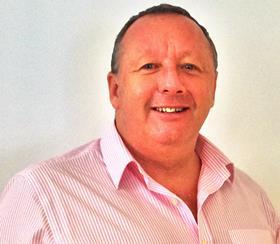
The monopoly Cavendish has on banana sales might have to come to an end soon, with the variety threatened by disease, but innovations abound across the category.
Future-proofing in-house is among the items at the top of the agenda for the leading players in the UK banana trade, in a market that has seen and will continue to see a number of changes.
The development of ripening facilities will be one of the biggest changes in the category over the next 10 years, according to Toni Direito, commercial director at Compagnie Fruitiere UK.
He says: “Everyone will start to reinvest and future-proof their sites to cope with the next generation of demands and requirements.
“We will all need to be efficient and ready for all eventualities. As we have already built our next generation state-of-the-art ripening centre in Wigan, we now embark on looking at getting ready to do the same in the south, giving us the spread of northern and southern ripening for customer needs across the whole of the UK.”
Compagnie Fruitiere UK claims it is the only fresh produce supplier in Britain using voice-recognition stock control in its facility, which Direito says allows the team to move and manage bananas with “ease and speed”.
For Simon Trewin, commercial director at SH Pratt, improved traceability and cool-chain visibility coming about through superior technology is essential to the category’s growth, while Harley Williams, business development manager at BanaBay, says his firm has developed a continuous improvement plan with the remit of improving quality standards across its global business, and is currently investing time in further developing all of its internal processes.
As for the fruit itself, Direito reckons that if the T4 race of Panama disease spreads among the Cavendish variety, “this may cause issues in the future for the whole industry and banana category as we know it”.
Trewin is equally wary of the threat posed by disease, and cautions: “Unless Sigatoka (leaf) and Panama (roots) disease are controlled, or an alternative resistant variety or cross-breed is found, there could be severe shortages.” He tells FPJ that discussions with “key scientists” are taking place.
Direito, meanwhile, says that although his team has meetings planned to determine what is “around the corner, or what can help add to the category, unfortunately to the consumer, a banana is just a banana right now.”
For Trewin, the next generation of consumers needs to be targeted with small packs and smaller varieties, backed up by fruit-for-schools schemes, and a cementing of the bananas-as-sport-food message.
Trewin also notes the changing dynamic in terms of major supply nations, with Peru “becoming more important for organic”, the conglomerates stabilising from a supply point of view after “losing ground”, and his belief that alternative schemes to Fairtrade may come to the fore, with a focus on fair returns to the growers.
Williams would like to see technical developments towards a cleaner fruit with a longer shelf life, not to mention a greater resistance to disease, alongside growth through “innovation, branding and the creation of a defined category”.
Direito is more blunt when asked what the future holds for the category: “Right now, anything that is outside of the normal, because as the pre-packs start to get cheaper, we need to find more innovative ways of getting consumers to trade up to something different,” he argues.






No comments yet